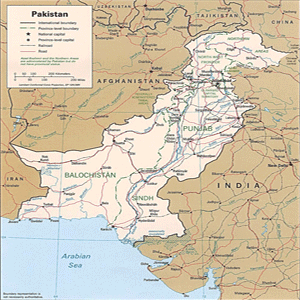The First Step towards Turbulence
Interview with Iran’s former ambassador to Pakistan on the agreement between Pakistan’s central government and radical groups

 The Pakistani government has agreed to stop military raids in northern Pakistan and allow enforcement of shari’a law. The agreement has been made to curb Taliban’s influence in the Pakistani tribal areas and after negotiations with tribal leaders, some of who have close relations with Taliban. The Swat valley, once a tourist haven and home to the most educated Pakistanis, is now under extremists’ control. Our interview with Mohammad Ebrahim Taherian, Iran’s former ambassador to Pakistan:
The Pakistani government has agreed to stop military raids in northern Pakistan and allow enforcement of shari’a law. The agreement has been made to curb Taliban’s influence in the Pakistani tribal areas and after negotiations with tribal leaders, some of who have close relations with Taliban. The Swat valley, once a tourist haven and home to the most educated Pakistanis, is now under extremists’ control. Our interview with Mohammad Ebrahim Taherian, Iran’s former ambassador to Pakistan:Why did the Pakistani government agree to the deal? Is the deal a sign of its weakness?
If the news about the agreement with radicals is true, public opinion will regard it as the first time the radical movement has managed to control a land. This would be as wrong as the deal made on Musa Qala in Helmand [with Taliban] which was supported by Afghanistan’s central government and some Western countries. Afghanistan and other countries of the region had to pay the price for that mistake. The recent decision, if true, will be another mistake. Knowing about the behavior of extremists, this will not be the final step towards peace, but the first step towards turbulence.
Wouldn’t this [the agreement] be an opportunity for Taliban to regain strength?
Definitely. Providing the extremists with a territory is based on a wrong assessment. With this, radicalism will spread all across Pakistan. They are an exclusionist group that is not asking for a piece of the cake but for all of the cake.
The deal has been made concurrent with Richard Holbrooke’s (US Special Representative for Afghanistan and Pakistan) visit. Is there a connection here?
As much as I have heard, both the US administration and the US envoy have stated that they are more inclined to listen rather than to dictate, so the Pakistani government may want to exert pressure on Western countries by this measure. Also, Hillary Clinton has stated that the US is studying the agreement and trying to understand the Pakistani government’s intention which shows they are not fully informed about the story. However, with or without their cognizance, the mistake has been done with an incorrect assessment of the situation.
Does the deal fuel the struggle between India and Pakistan
At any rate, the more Islamabad and New Delhi approach towards common interests, the more they can control radical groups. Radicalism will cause trouble not only for the sub-continent but for the entire world. If India and Pakistan diverge and think they can take advantage of radical movements against each other they have made a big mistake. The course of events in both India and Pakistan shows that the cost of using radicals in the rivalry is much more than its price.

